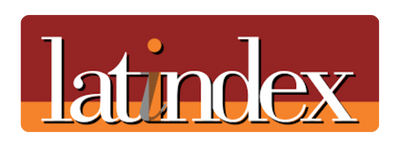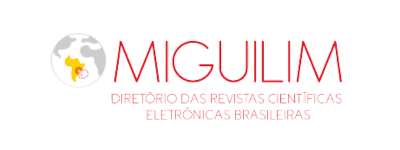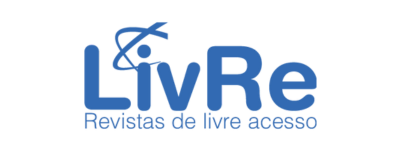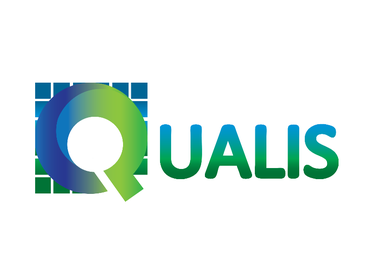The Non-Obvious Obviousnesses of Education About Education: What Is Said; What Is Not Said; What Is Forbidden to Say; What Is False to Say; and What Should Be Said.
Visualizações: 337Keywords:
NoneAbstract
Inglês:
Education is a minefield because it is permeated by power dynamics. Its importance is not in the sublime whispers of a formative nature, in the obliging ethics of pedagogy, or in the commitment to student learning; these exist, but tend to be part of the embellishments. Its importance lies in its political nature, the capacity it holds to align with or disalign from the dominant power. The practice of education involves a power relationship from above in the educator, also a natural or usurped hierarchical one, and in the learner, the opposite side of the same divide. In the educator, there may be an attempt to restrain the learner; in the learner, there may be an emancipatory conquest, even against the educator's will. It is also important to consider that, since they are dynamics of life, they are ambiguous, complex, largely unpredictable, and always incomplete (DEACON, 2012). Some students learn despite the teacher, and some teachers perform well despite the student. All of this is possible because the relationship is not mechanically causal as a rule: education is not caused, it is mediated. Mediation is easily an intense political tangle because no control is linearly effective. Moreover, education is a heavy global industry (VERGER et alii, 2016; WORLD BANK, 2018; KLEES, 2017; NARAYAN; WEIDE, 2018), also because it is a typical “investment,” computed in terms of competitiveness and productivity, involving large institutions and ever-increasing budgets, focused on “human capital” (RINDERMANN, 2018), considered the most decisive “capital” to secure global leadership and accelerate economic and technological progress (LEE, 2018; DUDERSTADT, 2003). The idea of considering university access as a fundamental right also spreads the race for higher education exponentially. The notion of learning to learn or lifelong learning means stretching the process throughout life, which, on one hand, only recognizes the natural evolutionary dynamics of endless self-formation, and, on the other, turbocharges the “business” of education. This mix of “business” and “right” poisons its political nature.
Downloads
References
A VISION OF K-12 STUDENTS TODAY. 2020. https://www.youtube.com/watch?v=_AZVCjfWf8 A VISION OF STUDENTES TODAY. 2020.
https://www.youtube.com/watch?reload=9&v=dGCJ46vyR9o
ABEB-ANUÁRIO BRASILEIRO DA EDUCAÇÃO BÁSICA 2019. Todos pela Educação/Moderna. São Paulo https://www.todospelaeducacao.org.br/_uploads/_posts/302.pdf
ARONOWITZ, S. 2000. The Knowledge Factory – Dismantling the corporate university and creating true higher learning. Beacon Press, Boston.
BACICH, L. & MORAN, J. (Orgs.). 2018. Metodologias ativas para uma educação inovadora. Penso, Porto Alegre.
BASE NACIONAL COMUM CURRICULAR (BNCC). 2018. Educação é a Base. MEC, Brasília- http://basenacionalcomum.mec.gov.br/images/BNCC_EI_EF_110518_versaofinal_site.pdf
BESSON, J.-L. (Org.). 1995. A Ilusão das Estatísticas. Editora UNESP, São Paulo.
BID - ELACQUA, G., HINCAPIÉ, D., VEGAS E., ALFONSO, M. 2018. Profissão Professor na América Latina – Por que a docência perdeu prestígio e como recuperá-lo? BID, N.Y. https://publications.iadb.org/handle/11319/8953
CAMPELLO, T. & NERI, M.C. (Orgs.). 2013. Programa Bolsa Família – Uma década de inclusão e cidadania. Ipea, Brasília.
CAUFIELD, C. 1998. Masters of Illusion – The World Bank and the Poverty of Nations. Henry Holt and Company, New York.
DEACON, T.W. 2012. Incomplete Nature – How mind emerged from matter. W.W. Norton & Company, N.Y.
DEMO, Pedro. 2020a. Em nome do nada, amém! https://drive.google.com/file/d/182RhCgiaid1rnSPL7exQyzre_2kBR6mq/view
DEMO, P. 2016. EJA – proposta necessária e fraudulenta. https://docs.google.com/document/d/1Yetdh8gDOhx7vY8hZqlkw9Ys9Vf0N0sMsiA8JsOVcY4/ pub
DEMO, P. 2018. Frequentar a escola não basta – é preciso aprender – https://docs.google.com/document/d/1vwzaj1Hif7S2MlmxG5-
mW4aKKzfGERI31c5T_sReLKg/edit
DEMO, P. 2020. Educação à Deriva – À direita e à esquerda: instrucionismo como patrimônio nacional – https://drive.google.com/file/d/10nMlgL8N9GKFgwtnbL-bIn7GQf0HdyA4/view
DEMO, P. 2020b. Pedagogia como engenharia – Para sair da rotina escolar. https://drive.google.com/file/d/1eF1U2ShapTLQe1blcrZoToIpgriYNzf_/view
DEMO, P. 2020c. Aula, de novo! https://drive.google.com/file/d/14kOSJdVZKT9Ufqno1oRLkwj6Y-qW_UR1/view
DEWEY, J. 2010. Experiência e Educação. Vozes.
DUDERSTADT, James J. 2003. A University for the 21st Century. The University of Michigan Press, Ann Arbor.
FOERSTER, H. & POERKSEN, B. 2008. Wahrheit ist die Erfindung eines Lügners: Gespräche für Skeptiker. Carl-Auer-Systeme. Berlin.
FOUCAULT, M. 1977. Vigiar e punir - História da violência nas prisões. Vozes, Petrópolis.
FRIGOTTO, G. 1989. A produtividade da escola improdutiva. Cortez, São Paulo.
HARARI, Y.N. 2017. Homo Deus – A brief history of tomorrow. Harper, London.
KLEES, S. 2017. A critical analysis of the World Bank’s World Development Report on education. Bretton Woods Project - https://www.brettonwoodsproject.org/2017/11/criticalanalysis-world-banks-world-development-report-education/
KURZBAN, R. 2010. Why Everyone (Else) is a hypocrite: Evolution and the modular mind. Princeton University Press, Princeton.
LEE, K-F. 2018. AI Superpowers: China, Silicon Valley, and the new world order. Houghton Mifflin Harcourt, N.Y.
LUCKESI, C.C. 1995. Avaliação da Aprendizagem escolar. Cortez, São Paulo.
MORGENSTERN, O. 1972. L’Illusion Statistique - Précision et incertitude des données économiques. Dunod, Paris.
NARAYAN, A. & WEIDE, R.V. 2018. Fair Progress? Economic mobility across generations around the World. World Bank, Washington -
https://openknowledge.worldbank.org/handle/10986/28428
O’CONNOR, A. 2001. Poverty Knowledge – Social Science, Social Policy, and the Poor in Twentieth-Century U.S. History. Princeton University Press, Princeton.
POERKSEN, B. 2004. The Certainty of Uncertainty – Dialogues introducing constructivism. Imprint Academic, London.
RESCHER, N. 1987. Forbidden Knowledge: And other essays of the philosophy of cognition (Episteme, Vol 13). D. Reidl Publisher Co., Dordrecht.
RINDERMANN, H. 2018. Cognitive Capitalism – Human Capital and the wellbeing of nations. Cambridge U. Press.
SAHLBERG, P. 2017. FinishED leadership. Corwin, Thousand Oaks.
SHATTUCK, R. 1996. Forbidden Knowledge – From Prometheus to pornography. St. Martin’s Press, New York.
TWENGE, J.M. 2017. iGen: Why today’s super-connected kids are growing up less rebellious, more tolerant, less happy – and completely unprepared for adulthood – and what that means for the rest of us. Atria Books, Amazon.
VASCONCELLOS, C.S. 1998. Avaliação da Aprendizagem: Práticas de mudança – Por uma práxis transformadora. Libertad, São Paulo.
VASCONCELLOS, C.S. 1998a. Superação da Lógica Classificatória e Excludente da Avaliação – do “É proibido reprovar” ao é preciso garantir a aprendizagem. Libertad, São Paulo.
VERGER, A. & LUBIENSKI, C., STEINER-KHAMSI, G. (Eds.). 2016. World Yearbook of Education 2016: The global education industry. Routledge, London.
WORLD BANK (WB). 2018. Learning – To realize education’s promise. The World Bank, Washington. https://openknowledge.worldbank.org/handle/10986/28340
ZHAO, Y. 2014. Who is afraid of the big bad dragon: Why China has the best (and the worst) education system in the world. Jossey-Bass, San Francisco.
ZHAO, Y. 2018. What works may hurt – Side effects in education. Teachers College Press.
Downloads
Published
How to Cite
Issue
Section
License
Copyright (c) 2021 Revista de Estudos Interdisciplinares

This work is licensed under a Creative Commons Attribution 4.0 International License.
The Journal of Interdisciplinary Studies adopts the Creative Commons Attribution 4.0 International License (CC BY 4.0), which allows for sharing and adapting the work, including for commercial purposes, provided proper attribution is given and the original publication in this journal is acknowledged.













